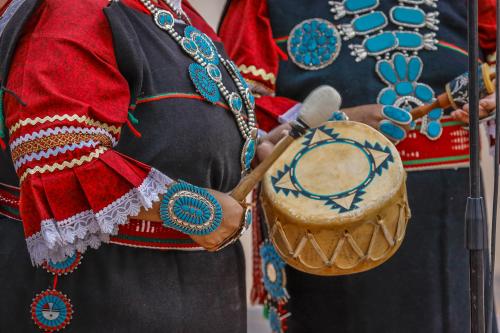On Friday, President Vladimir Putin’s former finance minister, Alexei Kudrin, issued a stark warning to his former boss: If the regime refuses to pursue “further” political reforms and continues its recent policy of mass detention, it will radicalize the opposition and jeopardize any real possibility of meaningful dialogue. Mr. Kudrin – an associate with such close ties to Mr. Putin that the two have been referred to as “Pudrin” – commands Mr. Putin’s respect. But will Mr. Putin listen?
Prospects for a Russian political center
In the months leading up to Putin’s inauguration, both the opposition and the government seemed to be pursuing a path toward negotiated political change. The massive street protests against the falsification of the Parliamentary elections were peaceful and festive. Soon after, this momentum was transferred into real grassroots political organization. Focusing on local change through the ballot box, members of the opposition picked up seats in the Moscow district council and mayoral positions in both medium-sized Russian towns.
The Putin regime sanctioned these large protests while directing the police to avoid violence or large-scale crackdowns. The regime also seemed to be responsive to the demands of the protestors. Although refusing to rerun the elections, outgoing President Dmitry Medvedev pushed through a bill liberalizing party registration and another restoring gubernatorial elections. Something truly “revolutionary” seemed to be developing in Russian politics: a political center.
In the last couple of weeks, however, this political center seems to be shrinking. The regime has abandoned pledges of continued political reform through constitutional change and instead has increasingly focused on intensifying state involvement in economic growth. Elements of the opposition, too, seem to have changed tactics. On May 6, the street protests grew more violent. Following the example of self-professed Stalinist and professional revolutionary (Sergei Udaltsov), elements of the opposition consciously sought to provoke the police. The police obliged by arresting on sight anyone wearing the white ribbons of the opposition. Meanwhile, confrontational rhetoric has escalated on both sides. Opposition bloggers have recently proclaimed that “rebellion is inevitable” and “the battle for Russia has begun. This is war!” In response, Mr. Putin’s spokesman encouraged the police to smear the “livers of protesters across the asphalt.”
In the aftermath of this radicalization, things have reached a tense stalemate. More experienced opposition leaders have called for an end to escalating street violence and provocations. For instance, Grigory Yavlinsky has criticized the opposition for this more violent, confrontational approach. Instead, he argued, the opposition has to embark on “serious politics, win elections, and take power. Will it be a long time? Yes, six years is very long, but we’ll cannot do this any quicker.” Yavlinksy has been joined by other moderates, including Vladimir Milov, who argue that the best way to keep pressure on the regime is to abandon revolutionary rhetoric and assemble the broadest coalition possible to force political reform.
Learning from history
It is less clear whether voices within the Putin regime are counseling moderation. One thing, however, is clear: If the regime is serious about learning from Russian history, they should be. Since taking power in 2000, Mr. Putin has obsessively cited Russian history in support of his belief that revolutionary change is counterproductive and that the best path for Russia is evolutionary reform under a strong and law-based government. In 2001, Putin joked that Russia “overfulfilled its plan for revolutions” in the twentieth century.
But another lesson from Russian history is equally important: Evolutionary change is only possible when the government is willing to allow room for the formation of a political center. The Tsarist government brought on the 1917 Russian Revolution by refusing to compromise with moderates and destroying Russia’s political center. Men like Kudrin and Yavlinsky are currently seeking to begin the painstaking process of constructing a broad political center. Will Mr. Putin and his regime learn from history and help this effort? Or will they stifle its development and push Russia to once again “overfulfill” its quota for revolutions?
The Brookings Institution is committed to quality, independence, and impact.
We are supported by a diverse array of funders. In line with our values and policies, each Brookings publication represents the sole views of its author(s).



Commentary
Op-edWill Vladimir Putin Learn from Russia’s Revolutionary History?
May 14, 2012